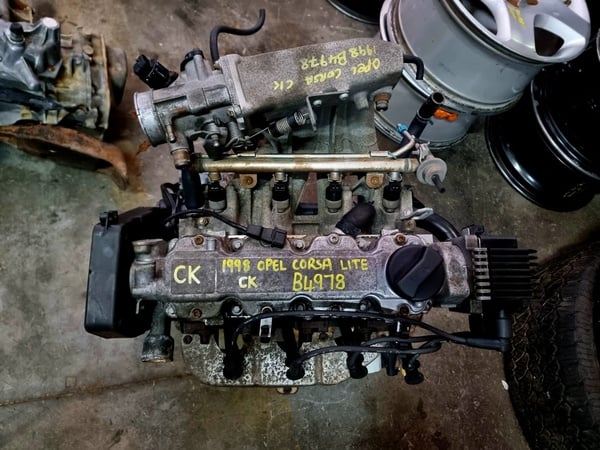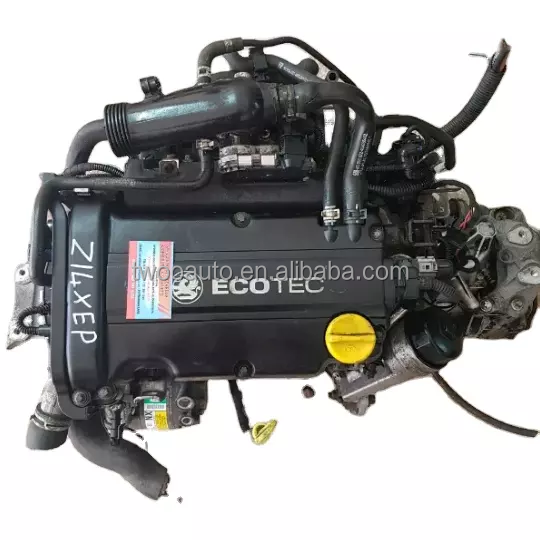Opel Corsa 1.4 Engine Price: Shop High-Quality Car Parts for Your Automobile
Opel Corsa 1.4 Engine Price: Shop High-Quality Car Parts for Your Automobile
Blog Article
Engine Acquiring Expert Tips on Choosing the Right Engine for Your Details Demands
Picking the best engine for your particular requirements involves an intricate interplay of aspects that exceed simple horse power numbers. From power outcome to sustain efficiency, the decision-making procedure can be daunting. Recognizing the nuances of engine kinds, dimensions, and their compatibility with your automobile is vital. Nevertheless, there are professional tips that can help navigate this terrain with self-confidence. By delving right into the intricacies of power versus effectiveness, examining gas ratings, and budgeting for long-term expenses, one can really optimize their engine selection.
Power Vs. Performance: Finding the Balance
When selecting an engine, it is critical to strike an equilibrium between power and effectiveness to satisfy your specific requirements successfully. Power describes the engine's ability to generate power for propulsion, determining aspects like acceleration, lugging ability, and general performance - Opel Corsa 1.4 Engine Price. On the various other hand, performance associates to how well the engine uses gas to produce power, impacting variables such as fuel economy and environmental friendliness
Achieving the ideal balance between power and effectiveness is essential due to the fact that an engine that is too effective might consume excessive gas, leading to higher operating expense and unneeded pressure on the environment. Conversely, an engine that prioritizes effectiveness over power might result in slow-moving performance, specifically sought after situations like lugging hefty lots or driving uphill.
To make an informed decision, think about elements such as your common driving conditions, the designated use the automobile, and your individual choices. By evaluating your requirements and concerns, you can pick an engine that strikes the best balance in between power and efficiency, ensuring optimum performance while minimizing ecological influence and operating expenses.
Understanding Engine Size and Kind
To even more improve the choice process of an engine that strikes the optimum balance in between power and efficiency, it is essential to look into the ins and outs of recognizing engine size and type. Engine dimension refers to the complete quantity of air and fuel that can be pushed via the engine cyndrical tubes. It is commonly determined in litres or cubic centimeters. Larger engine sizes typically lead to more power result however can additionally result in reduced gas efficiency. On the various other hand, smaller engine sizes are frequently much more fuel-efficient however might sacrifice some power.
Furthermore, engine kind plays an important duty in establishing the efficiency characteristics of an engine. Usual engine types consist of inline engines, V engines, and rotary engines, each with its distinct benefits and drawbacks. The engine type affects elements such as the engine's size, weight distribution, and power distribution. Recognizing the interaction in between engine dimension and type is essential in choosing an engine that straightens with your certain demands and priorities, whether it be power, performance, or an equilibrium of both.

Consider Your Vehicle's Demands
Considering your car's requirements is a basic action in the engine selection process to guarantee ideal efficiency and functionality. It is important to examine aspects such as the intended use the vehicle, its weight, pulling capacity, and fuel efficiency needs. For instance, if you my review here are trying to find an engine for a durable truck that will certainly be made use of for towing, you will certainly need an effective engine with high torque capabilities. On the various other hand, if you are selecting an engine for a small automobile mostly utilized for city commuting, fuel performance might be a much more important factor to take into consideration.
Furthermore, the surface on which the automobile will mainly operate ought to influence your engine choice. A robust engine with excellent climbing power will be required if you often drive in hilly or hilly areas. Alternatively, for flat terrains, a more fuel-efficient engine may be enough. By lining up the engine specs with your car's needs, you can ensure that your vehicle runs efficiently and satisfies your performance expectations.
Assessing Fuel Efficiency Scores
Examining fuel performance scores is a vital element of picking the right engine for your car, ensuring cost savings and ecological sustainability. Fuel effectiveness scores, usually measured in miles per gallon (MPG) for fuel engines or kilowatt-hours per 100 miles (kWh/100 miles) for electrical engines, suggest how much a lorry can take a trip on a details quantity of fuel or electricity. Greater MPG or reduced kWh/100 miles values signify extra reliable engines, converting to reduced gas prices and reduced carbon emissions.
In addition, contrast various engine choices within the same vehicle class to identify the most cost-effective choice. Factors such as engine dimension, weight, the rules of aerodynamics, and crossbreed or electric capabilities can all affect gas performance.
Budgeting for Long-Term Expenses
Strategically preparing for lasting costs is essential when selecting an engine, ensuring financial sustainability over the vehicle's life expectancy. While the initial purchase rate of an engine is a substantial variable, it is vital to consider the lasting costs associated with maintenance, repairs, and gas consumption.
Moreover, researching the accessibility and price of replacement parts for the picked engine is crucial in budget planning. Engines with economical and easily offered parts can significantly impact lasting upkeep costs. Additionally, thinking about the engine's toughness and expected life expectancy can aid stay clear of unforeseen substitute costs in the future. By carefully budgeting for these long-lasting costs and factoring them into the decision-making process, individuals can choose an engine that not just satisfies their immediate requirements yet also continues to be affordable throughout its life-span.
Final Thought
Finally, picking the appropriate engine for your details demands requires balancing power and efficiency, comprehending engine dimension and kind, considering your car's demands, assessing gas efficiency ratings, and budgeting for long-lasting prices. By meticulously taking into consideration these factors, you can ensure that you choose an engine that meets your demands and provides optimum performance for your car.
To better improve the option procedure of an engine that strikes the ideal equilibrium between power and performance, it is essential to delve into the details of comprehending engine dimension and kind. Engine size refers to the complete volume of air and fuel that can be pressed view publisher site through the engine cylinders. Common engine types consist of inline engines, V engines, and rotary engines, each with its distinct advantages and downsides. Understanding the interaction you could try these out in between engine size and type is essential in picking an engine that lines up with your specific needs and top priorities, whether it be power, efficiency, or an equilibrium of both.

Report this page